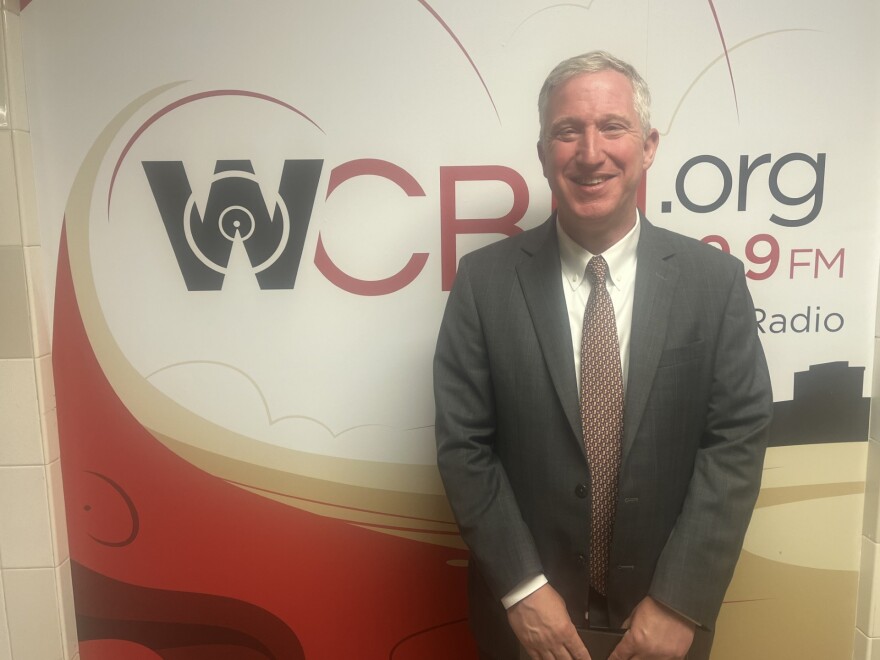Juvenile arrests in Peoria spiked by almost 30% last year, with crimes like carjackings and attempted robberies among the most common. A broad coalition of city, county and state organizations are working on a new approach.
Peoria Police Chief Eric Echevarria has publicly stated a majority of these crimes are committed by the same handful of adolescents. The creation of a “juvenile problem solving court” would forgo a “cookie cutter” approach to target these specific youths.
10th Judicial Circuit Judge Frank Ierulli has taken the lead on the judicial side in creating the court, which has been in development for more than a year. After a guilty plea, the accused are directed to services addressing the underlying factors of their crime, like poverty, addiction and mental health. The program will exclude some violent crimes, like murder and sexual assault.

“While I’d like to think that we can help all of them, I’m not sure that we can, I’m not naive, but I do believe that we can help a substantial portion of them. And, in doing so, it will create an enormous effect,” Ierulli said.
The program would be more hands-on than typical probation. Where an average release term may require a monthly probation visit, this court could require contact with services once a week.
Jessica Durbin is the chief probation officer for Peoria County Juvenile Probation.
“On top of, you know, probation working with this youth, so would some sort of service provider, whatever is relevant for them,” she said. “Whether that be a mental health practitioner, maybe somebody that specializes in substance abuse disorders, you know, whatever kind of their particular, individualized needs are.”
But as co-chair of the Peoria City/County Joint Commission on Racial Justice and Equity (RJE) Tim Bertschy says, there are still a lot of unknowns, because the book on how this court works is literally being written right now.
The handbook will be submitted for review to the Administrative Office of Illinois' Courts.
“The handbook will demonstrate, or, will identify how we operate this court,” Bertschy said. "And then they come in after about six months and do a, in essence an audit to see how we’re doing and making sure that we’re achieving the ends that, you know, we had hope to obtain."

In addition to Judge Ierulli and the RJE's justice work group, partners in the project include State's Attorney Jodi Hoos, Peoria County probation services, a litany of organizations throughout the city who would provide support services and Chief Judge Katherine Gorman.
“I am a proponent of problem solving courts,” Gorman said. “I want to give a shout out to my dad, who actually brought drug court here in the mid-90’s as chief judge.”
Durbin's probation team will have to adjust to a more demanding system. But she sees clear advantages to switching up the approach to juvenile justice.
“There have been a lot of individuals who take an interest in juvenile crime, which is much appreciated because we do need to just stay apprised of what’s happening,” she said. “But the take, I think, of what’s beneficial for the problem solving court is it’s going to bring those community agencies together.”
According to Ierulli, the courthouse will need funds for a dedicated counselor and two additional probation officers to run the program.
“Programs like this, understandably, are expensive,” he said. “But, it’s far more expensive to have a youth committing criminality over and over and over again.”
Detaining kids in county facilities is expensive, Ierulli says, and the cost-benefit analysis is in favor of preventing that.
Bertschy hopes that this problem solving court can achieve something that has seemed out of reach of the current system for juvenile justice and juvenile detention facilities.
“I don’t know that I have the exact numbers, but I think most people would say within a few months they’re back in the community and that, frankly, the detention facility has done little to modify their behavior or strengthen them in individual ways that address these problems,” Bertschy said.
At the same time work has progressed on the problem solving court, the group has also restarted a Juvenile Justice Coordinating Council, coordinated by Ashley Cornish, another juvenile probation officer.
Tim Bertschy says a community-wide evaluation of the juvenile justice system should hopefully identify some areas where some extra coordination, funding, incentives, or some combination of the three could be applied.
The group expects the juvenile treatment court to be active by the beginning of next year.


